Brisbane 2032 Olympics boss Andrew Liveris flags nuclear-powered Games
Brisbane Olympics boss Andrew Liveris warns nuclear power must be in the mix to make the Games ‘climate-positive’.
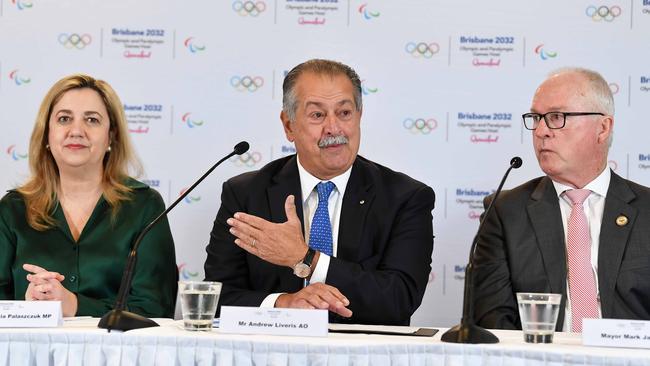
Nuclear power from cutting-edge small modular reactors must be considered for the 2032 Brisbane Olympics if organisers are to meet a contractual obligation to make the multibillion-dollar event “climate-positive”, Games boss Andrew Liveris has warned.
Defying Labor’s entrenched hostility to nuclear energy at both the federal and state levels, Mr Liveris insisted SMRs had to be in the mix and “we shouldn’t eliminate any pathway to get to climate-positive”.
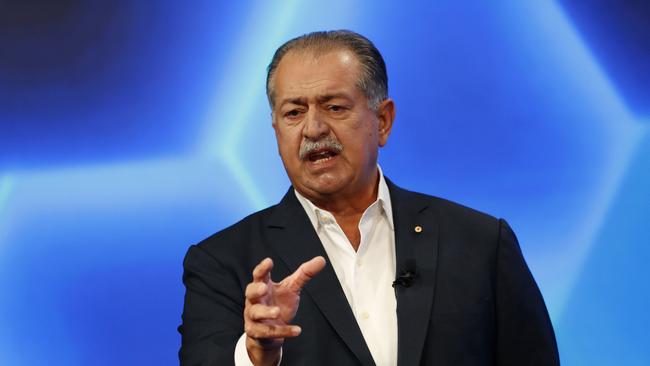
The former Dow Chemical chief executive’s calls came after this week’s axing of the 2026 Commonwealth Gamesby Victorian Premier Daniel Andrews threw Australian sport into turmoil – a development Mr Liveris described as “shocking” and “not a good look” for the country.
But Mr Liveris said it would not affect the 2032 Olympics.
In an interview to mark the second anniversary of Australia securing a third Olympics, the high-flying international businessman and president of the Brisbane Games organising committee, said “outdated views on nuclear power” should not stop the boutique powerplants from being explored.
“I definitely am in the school of thinking that when you think about the technologies to get us to zero emissions, carbon-positive, you cannot take SMRs out of the conversation,” Mr Liveris told The Weekend Australian.
“Now, it’s early stages, but so is … green hydrogen. I’m a fan of all of the above – green hydrogen, carbon capture and storage, a price on carbon and if we can get pumped hydro to be built and economic, for that as well. But I don’t think you can drop SMRs off the menu because of some outdated view of nuclear power. I think you’ve got to be very current on what SMRs are, and what they are not.”
Queensland Premier Annastacia Palaszczuk, who is battling to keep office at next year’s state election, slapped down the idea, with her spokesperson saying: “The government does not support the use of SMRs. This is in line with advice from the CSIRO.”
Next-generation nuclear reactors
As a former chair and CEO of US industrial conglomerate Dow Chemical, Mr Liveris is deeply familiar with the technology through a program run by the company aimed at replacing gas-fired generators in Texas with SMRs. These next-generation reactors typically produce up to 300MW of emission-free power – about a third of the output of a traditional nuclear plant – but are 50 per cent cheaper, quicker to build and create less nuclear waste.
China and Russia already operate prototype SMRs, and 17 other countries are scrambling to develop the technology. The first American SMR is due to enter service in 2026, experts say.
Brisbane 2032 will be the first Games mandated by the International Olympic Committee to be climate positive, meaning the carbon savings must exceed the volume of emissions. A management plan to compensate the greenhouse gas emissions is outlined in the host city contract with the IOC.
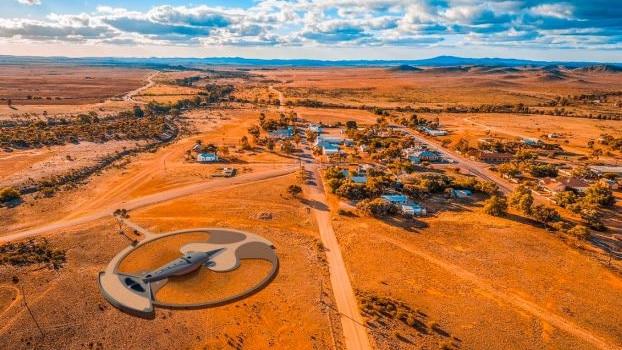
Mr Liveris said the climate-positive benchmark was a step up on the requirements for next year’s Paris Olympics and Los Angeles 2028 to be “climate-neutral”.
Mr Liveris emphasised that SMRs were one of a number of options that should be on the table to power the Brisbane Games.
“I’m not saying they will be used,” he said. “What I am saying to you is we shouldn’t eliminate any pathway to get to climate-positive.”
Asked if he had raised with Anthony Albanese or Ms Palaszczuk the prospect of bringing nuclear technology to Australia, Mr Liveris said: “Actually, no, I have not. I have not reviewed … this proposition with either of them.”
‘World’s biggest energy revolution’
“I’m just telling you it’s Andrew Liveris, president of Brisbane 2032, saying I’ve got a commitment to climate-positive and until someone tells me not to consider something for some reason that I haven’t heard yet, then we’re going to consider all of it.”
Ms Palaszczuk acknowledged the centrality of the climate-positive provision on the day the IOC awarded the Games to Brisbane, July 21, 2021.
“We pledge to create a successful model under your new host city strategy by showcasing a cost-neutral, climate-positive, safe … and enthralling experience for the whole world,” the Premier said.
The Premier’s spokesperson said on Friday the contested status of nuclear SMR technology had not changed.
“Following extensive consultation with the Australian electricity industry, report findings do not see any prospect of domestic projects this decade, given the technology’s commercial immaturity and high cost,” the spokesperson said.
“The Queensland government is embarking on one of the biggest energy revolutions in the world investing $19bn over the next four years transitioning to clean, affordable, renewable energy.”
Mr Liveris, who has flown in to Brisbane to be on hand for this weekend’s “nine years to go” celebration, is thinking outside the box in other ways to contain costs and boost “optimisation” at the 2032 Olympics.
He likes an idea floated by IOC powerbroker and veteran former Australian Olympic Committee president John Coates to limit how long athletes can stay in village accommodation at the Games.
“Does every athlete need to come for two weeks for the two sets of Games? Or can we just bring in athletes for their time frame and have them leave?” Mr Liveris asked.
He also questioned whether an expansive and expensive broadcasting centre was necessary in the digital age.


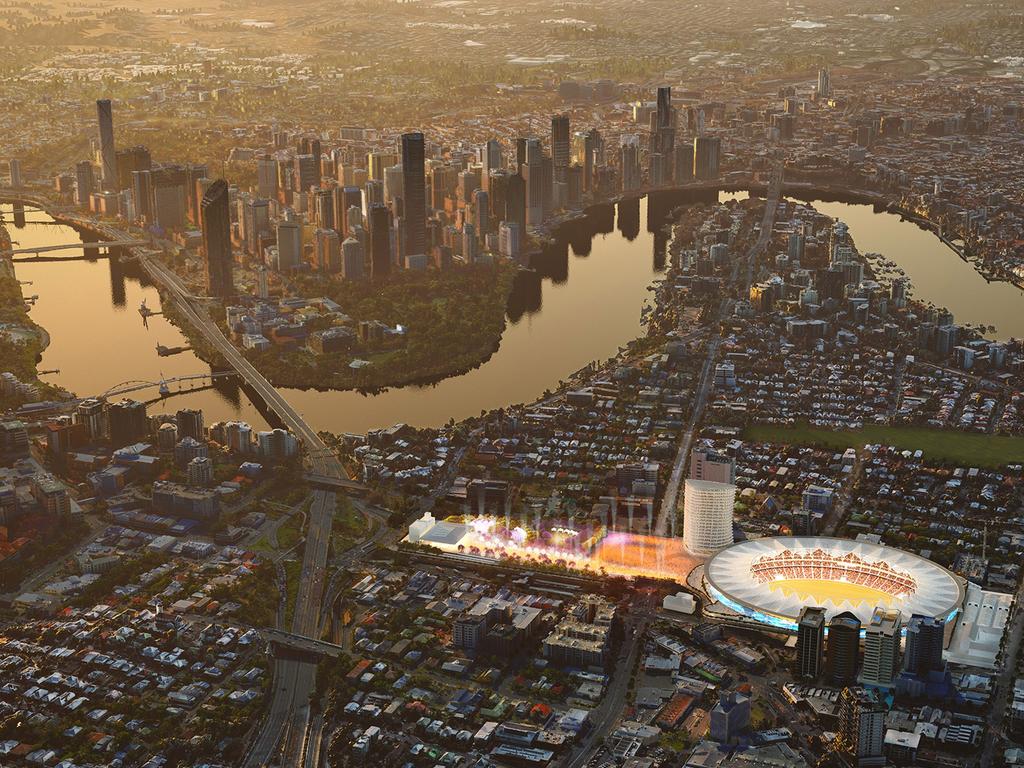
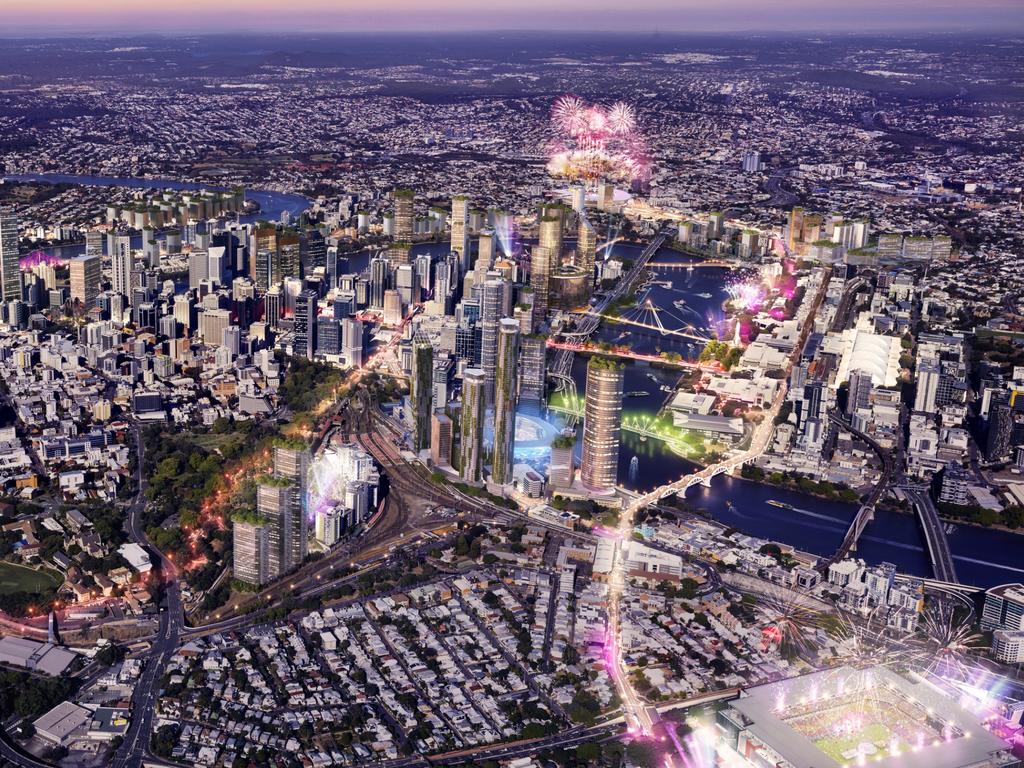




To join the conversation, please log in. Don't have an account? Register
Join the conversation, you are commenting as Logout